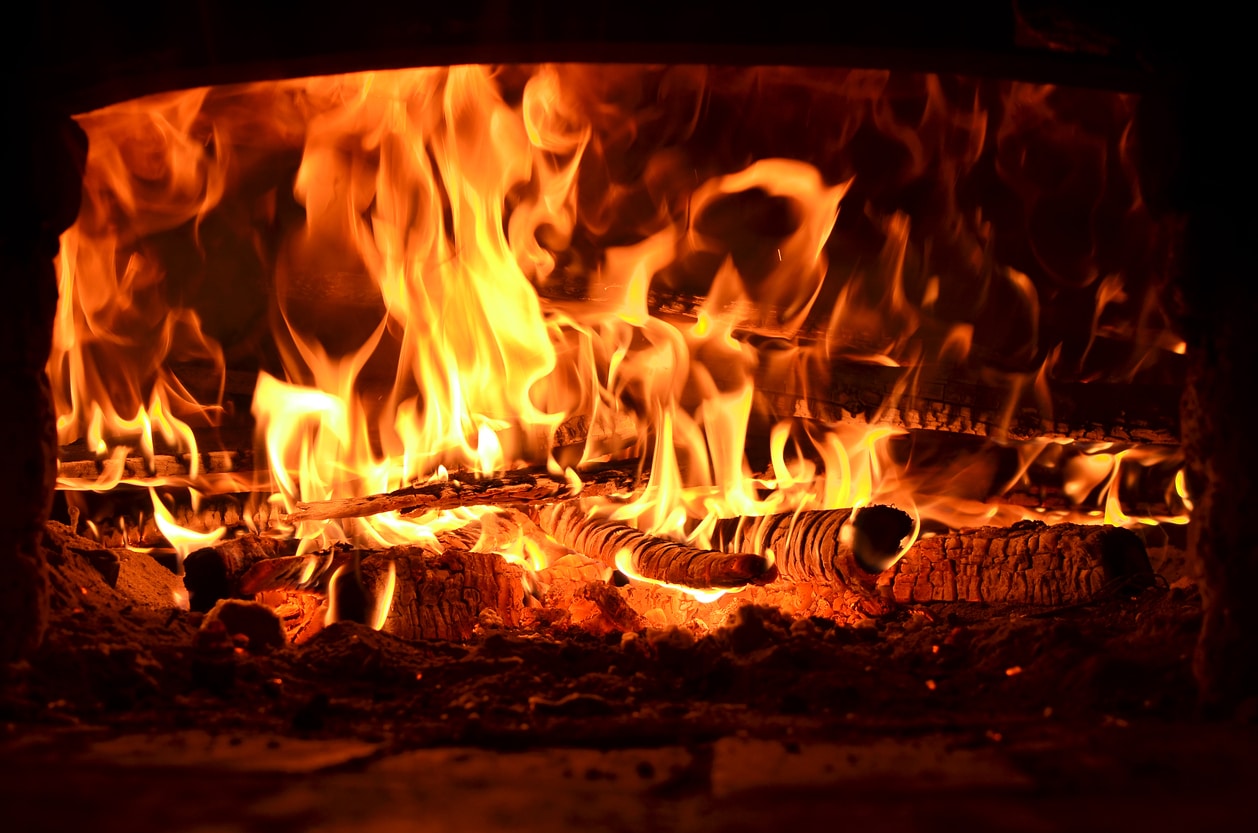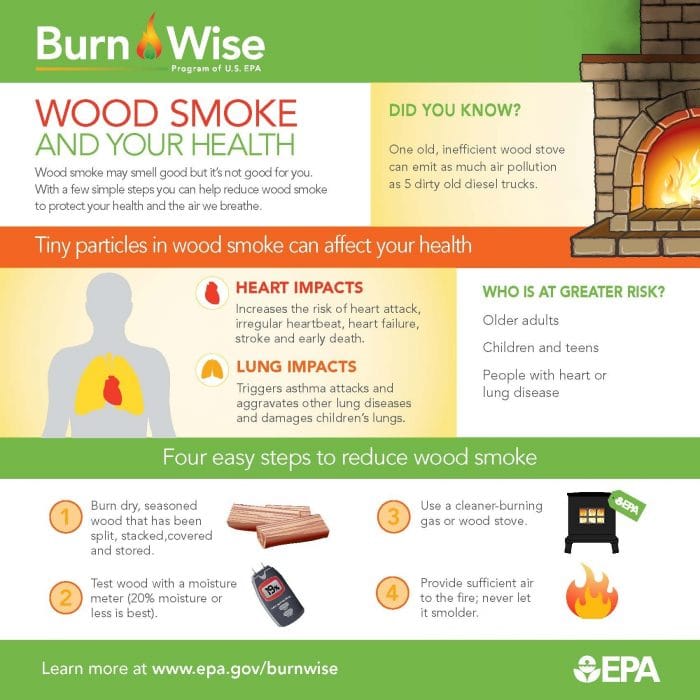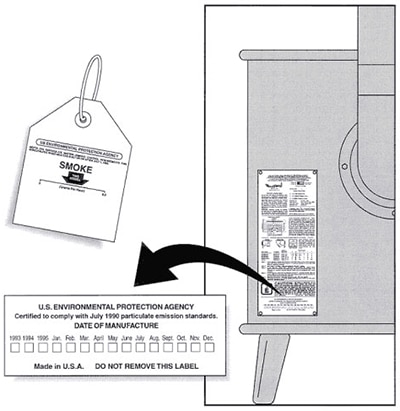Wood Stove Removal in Oregon: A Complete Guide

Selling or buying a home in Portland? You may have this item on your to-do list: Dealing with decommissioning the wood stove.
Wood stove decommissioning is still a hot topic in Portland because many homes have older wood stoves that are not EPA-certified, and therefore are illegal to sell with the home. Period. Real estate sales contracts will let you choose to make the seller or the buyer responsible for the removal, but the removal of the wood stove in Oregon is not negotiable. It doesn’t matter if the wood stove is not in use, if it is in a shop or garage, or if the wood stove installation is otherwise up to code. If the stove itself is not certified, it must be decommissioned before the home can change owners. This is the rule in many states, and is the rule in Portland, as well as the entire state of Oregon.
In this blog post, we’ll take a closer look at what it means to decommission a wood stove, why the law was created in the first place, and how to responsibly dispose of an older wood stove in Portland.
Why Decommission a Wood Stove?
For those who have been using an uncertified wood stove for years, it can be a bit surprising to learn that the trusty old cast iron stove is actually a health hazard.
The problem is that the smoke created when burning wood can contain particulate matter 2.5 micrometers in diameter — 30x smaller than the diameter of a human hair. These particles get caught in the lungs of anyone breathing this smoke and trigger breathing difficulties and asthma attacks. Over time, particulate matter can lead to respiratory disease and heart problems. In fact, last year Multnomah County initiated a tougher ban on wood burning in an effort to mitigate the aforementioned risks. While this applies to all wood burning (indoor wood stoves, fireplaces, and fire pits), it underscores the overall risks of wood burning. It naturally follows that the continued use of a non-certified wood stove would only compound these risks.
In addition to the particulate matter, wood stove smoke also contains dozens of toxic organic compounds known to cause cancer.
See below wood stove health hazard notice from DEQ:

These health risks triggered the EPA to begin regulating wood stoves in 1988. The EPA has issued regular updates to its emissions standards ever since, and manufacturers of wood heating devices are required to meet those standards. You can view the requirements here.
Wood heating devices that were manufactured to meet the EPA’s emissions standard are certified. Certified wood stoves burn 70% cleaner than uncertified ones, and greatly reduce the health risks involved in generating wood smoke in the home. Certified wood stoves achieve greater efficiency while polluting less because they burn the wood at a higher temperature. They may also utilize catalytic converter technology to prevent toxic organic compounds from escaping into the atmosphere.
Because the pollution control technology must be built into the wood stove, they cannot be certified after they are manufactured. And a 2009 Oregon Law, SB 102, requires that uncertified wood stoves must be decommissioned before the home is sold (as in, closed at escrow), so that eventually all uncertified wood stoves will be out of use.
Why is Portland trying to eliminate uncertified wood stoves?
A combination of population density and a high number of uncertified wood stoves make Portland one of the worst areas in the nation for wood smoke pollution. According to the EPA, up to 80% of the haze hanging around the Willamette Valley on cold winter days could be coming directly from wood smoke.
A 2014 DEQ survey of Portland residents found that 32% of respondents burn wood for heat, and that more than half are using uncertified wood stoves. Taking those stoves out of commission will go a long way toward improving Portland’s air quality and public health.
In addition, wood burning pollution disproportionately affects the most vulnerable populations in our area. These populations tend to rely more on wood burning to heat their homes and may not know whether or not their wood stove is certified. In an OPB interview last year, Multnomah County Commissioner Jessica Vega Pederson and Multnomah County Public Health Director Jessica Guernsey discussed the ways that wood smoke contributes to damaging health outcomes in the community, including heart and lung disease. They went on to share the strategies they are using to reduce the burden on vulnerable populations while working bring awareness and a sense of responsibility to the city of Portland at large.
How do I know if my wood stove is certified?
If a wood stove is certified, it will have a label from the DEQ or EPA affixed to the back. An Underwriters Laboratory or UL safety label does not mean the device is certified to meet emission performance standards. Physically checking the wood stove for the label is the only way to tell — there is no list of wood stove models that are certified for use in Oregon. Generally speaking though, any stove built or installed prior to 1986 is likely to be uncertified.

Oregon’s Wood Stove Decommissioning Requirements
Decommissioning means removing and/or destroying the wood stove so that it can not be used again. It’s the seller’s responsibility to comply with the law; however, it can be written into the sales contract that the buyer will take that responsibility on. In that case, the buyer will have 30 days after the home sells to meet the requirements. No matter which side of the sale you are on, be sure you know who the contract states is responsible for removing a non-certified wood stove.
What exactly does it mean to decommission a wood stove? If you’re not actually removing the stove (maybe you want to keep it for decorative purposes), it must be rendered inoperable for burning wood. The DEQ recommends removing the doors and hinges, and cutting four-inch diameter holes in the top and sides of the stove. This is very difficult to perform on a cast iron metal box, so nearly all sellers and buyers remove and destroy the wood stove.
Removing the stove is another way to decommission it, but it can’t be sold or given away. In fact, it should still be taken to a scrap metal dealer or recycler for destruction. Please keep the receipt of destruction! You might need it later. When the stove is dropped off, you should obtain a numbered receipt from the business that disposes of the stove.
The next step is to let the DEQ know that the wood stove has been decommissioned by going online and submitting an Uncertified Wood Stove Removal Notification. Then print and save a copy of the confirmation page.
Following the law is important to ensure that your home sale isn’t delayed. Not only is there a possible $750 fine, but mortgage companies will not proceed with a home sale if they discover that an uncertified wood stove is still in the home. There are plenty of reasons a home sale can fall through; don’t let neglecting to decommission a wood stove be one of them.
Antique Wood Stoves are Exempt
According to the State of Oregon, some devices are exempt from the certification requirements and do not need to be removed from the home at the time of sale. They include antique stoves, defined as a wood stove built before 1940 “that has an ornate construction and a current market value substantially higher than a common woodstove manufactured during the same period” [OAR 340-262-0450(1)]. Be careful there, simply because you have an old wood stove, doesn’t mean it is an antique. It has to have a substantially higher market value than other woodstoves made around the same timeframe.
Other exempt devices include:
- Central, wood-fired boilers
- Cook stoves
- Gas fireplaces and appliances
- Masonry heaters and fireplaces
- Pellet stoves
- Saunas
Getting Help with Wood Stove Decommissioning
While doing it yourself is perfectly legal, most people aren’t going to lug a 500 pound-plus chunk of cast iron out of their home, then drill 4” holes in the side! Fortunately, Portland has a number of professionals who will do it for you. Ask your real estate agent for a referral. Buck’s Stove Palace on Foster has specialized in decommissioning for years. Decommissioning your uncertified wood stove is an important step toward putting your home on the market and getting it sold quickly.
To learn more about Oregon’s wood stove requirements, go to their FAQ page. The DEQ’s online verification form for decommissioned wood stoves can be found here.
Thinking of Buying or Selling a Home with a Wood Stove?
If you’re considering buying a home with a wood stove within the metro area, our top 1% buyer’s team would love to help answer your questions. Or if you need help selling a house with a wood stove, our top 1% seller’s team is ready to assist you. Our real estate experience in the Portland metro area includes over 2,000 completed sales, including homes with uncertified wood stoves, and we’d love to put our expertise to work for you. Call us today at 503-714-1111.


